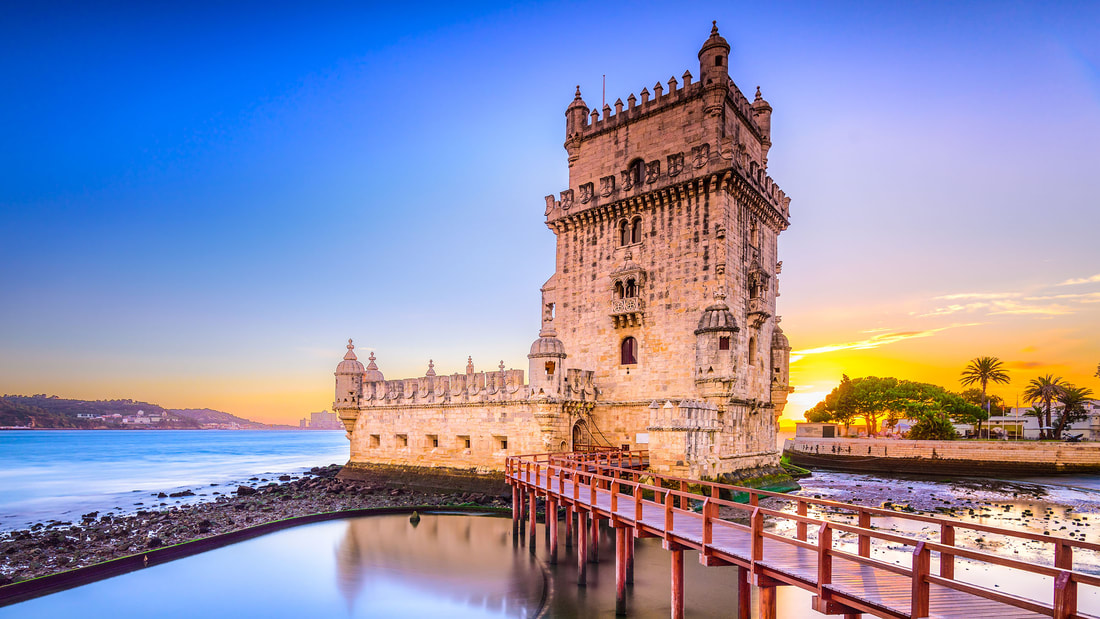Portugal
Portugal is located on the western Iberian Peninsula, sharing it's border with Spain. Portugal is the oldest nation on the Iberian Peninsula and one of the oldest in all of Europe (it is considered the second oldest country in Europe right after Greece.) Portugal's territory has been continuously settled, invaded, and fought over since prehistoric times. In the 15th and 16th centuries, Portugal established the first global empire, becoming one of the world's major economic, political and military powers. Portugal has left a profound cultural and architectural influence across the globe. (Source: Wikipedia.)
The country of Portugal emerged in the tenth century during the Christian reconquest of the Iberian Peninsula: first as a region under the control of the Counts of Portugal and then, in the mid-twelfth century, as a kingdom under King Afonso I. The throne then went through a turbulent time, with several rebellions. During the fifteenth and sixteenth centuries overseas exploration and conquest in Africa, South America and India won the nation a rich empire.
In 1580, a succession crisis led to a successful invasion by the King of Spain and Spanish rule, beginning an era known to opponents as the Spanish Captivity. A successful Portuguese rebellion in 1640 once again led to independence. Portugal fought alongside Britain in the Napoleonic Wars, whose political fallout led to a son of the King of Portugal becoming Emperor of Brazil; a decline in imperial power followed. The nineteenth century saw civil war, before a Republic was declared in 1910. However, in 1926 a military coup led to generals ruling until 1933, when a Professor called Salazar took over, ruling in an authoritarian manner. His retirement through illness was followed a few years later by a further coup, the declaration of the Third Republic and independence for African colonies. (Source: ThoughtCo.com.)
The country of Portugal emerged in the tenth century during the Christian reconquest of the Iberian Peninsula: first as a region under the control of the Counts of Portugal and then, in the mid-twelfth century, as a kingdom under King Afonso I. The throne then went through a turbulent time, with several rebellions. During the fifteenth and sixteenth centuries overseas exploration and conquest in Africa, South America and India won the nation a rich empire.
In 1580, a succession crisis led to a successful invasion by the King of Spain and Spanish rule, beginning an era known to opponents as the Spanish Captivity. A successful Portuguese rebellion in 1640 once again led to independence. Portugal fought alongside Britain in the Napoleonic Wars, whose political fallout led to a son of the King of Portugal becoming Emperor of Brazil; a decline in imperial power followed. The nineteenth century saw civil war, before a Republic was declared in 1910. However, in 1926 a military coup led to generals ruling until 1933, when a Professor called Salazar took over, ruling in an authoritarian manner. His retirement through illness was followed a few years later by a further coup, the declaration of the Third Republic and independence for African colonies. (Source: ThoughtCo.com.)

